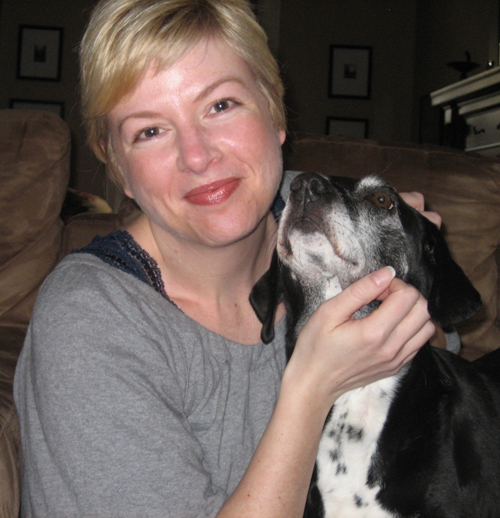
It’s a choice no dog owner wants to face. In March 2010 Christy Beckhoff’s 13-year-old dog, Annie, was diagnosed with lymphoma.
“We were devastated,” says Beckhoff. After the family vet removed a lump, they were referred to the Ontario Veterinary College (OVC) and presented with two choices: chemotherapy or palliative support.
Beckhoff, who is a social worker with a degree from Wilfrid Laurier University, knew something about making these tough decisions. At the time, she was working in a hospital cancer unit, helping human patients and their families.
But all of Beckhoff’s work experience hadn’t quite prepared her for the emotional experience of dealing with Annie’s illness. “It shocked me how upset I was,” she says. “I don’t think I had fully realized everything she meant to me. In the end, we made the decision that felt the best to us and opted not to pursue chemotherapy.”
More than 14 months later, Annie is still enjoying life with her family.
Later that year, Beckhoff learned that OVC had created a new donor-funded position for a clinical counsellor who would provide support for clients with sick and injured animals. “As a counsellor, you don’t always need to have experienced a specific situation to be able to help someone through it,” says Beckhoff, “but this felt like the perfect fit for me. Having had the experience with Annie, I knew that it was needed, and with my education and experience as a social worker, I knew I could help.”
She began working at OVC in November 2010 and works two days each week. “My days are all different,” she says. “I might get a call from a staff member to come and talk with a client who has just been told his animal is very ill. Sometimes I’m present during clinic appointments to support clients as treatments are discussed. I also have clients who come in for grief counselling after the loss of a pet, and I provide clinical and debriefing support for staff.”
Some of Beckhoff’s counselling sessions are offered over the phone. “We have many clients who live out of town, and sometimes a face-to-face conversation isn’t possible,” she explains. There is no charge to OVC clients for the counselling service.
Most of those she sees are small-animal owners, but she is prepared to work with large-animal owners as well. “People bond with all kinds of animals. When you love, you love; it doesn’t matter the size or species,” says Beckhoff. “The loss of any animal you love will be painful.”
That seems straightforward to Beckhoff, but she acknowledges that not everyone understands how strong those feelings can be. There is often little support for the trauma of losing an animal.
The OVC counsellor tries to help people identify those who will support them, and provides them with a safe place to grieve. “We know that these emotions need to be experienced in order to work through them. We need to be able to feel the pain and talk about it in order to process our experience and begin to move forward. It can be very unhealthy for us to suppress our grief.”
Beckhoff also helps people with the challenges of making health-care decisions. “The decision-making process is unique to each individual. I try to help people weigh the pros and cons and come to a decision that feels good to them. Our animals can’t tell us what they’d like us to do, but we want to honour them and do the right thing. This can translate into a huge burden of responsibility for the owners at a time of crisis. I tell my clients that when we make decisions out of love and care for our animals, they are always the right ones.”
Despite the pain of losing an animal, Beckhoff says, “Life feels better and fuller when animals are a part of it. Grief is the price we pay for love, and most of us will pay this price willingly for the opportunity to have loving relationships. The loyalty, trust and constant companionship our animals give us help us to feel worthy of unconditional love. They keep us grounded, present-focused and in the moment; they teach us so much.”